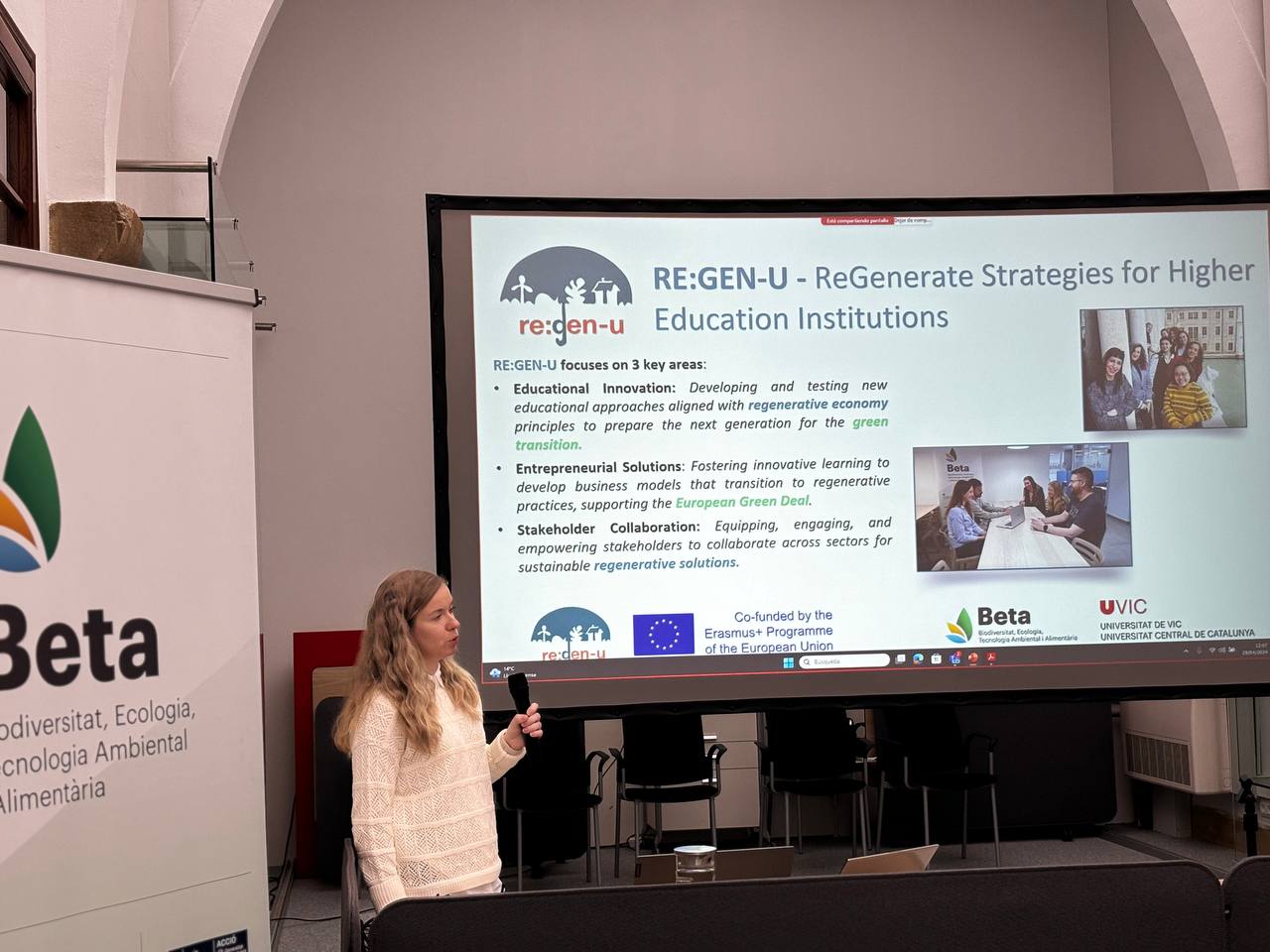Regenu Workshop: Mobilising Collective Action for Eco-Systemic Opportunities
The workshop promoted collaborative learning, encouraging participants to engage with peers, experts and mentors to cultivate a community of learning and growth

On 29 April, industry leaders, experts and stakeholders gathered at the BETA TECHNOLOGICAL CENTER, University of Vic, Spain, for a workshop on “Mobilising collective action to leverage eco-systemic opportunities”. This workshop, part of the REGENU project supported by the European Union’s ERASMUS+ programme, aimed to transform organisational models towards collective action, which is essential to address the challenges of the implementation of regenerative economy actions.
The workshop promoted collaborative learning, encouraging participants to engage with peers, experts and mentors to cultivate a community of learning and growth. At the end of the workshop, participants were left with valuable insights and tools:
- Collaboration Foundation: Equipped with a solid foundation for fostering collaboration and coordination efforts.
- Effective tools: Participants were provided with effective tools for coordinating actions and sharing relevant information within their local ecosystems.
- Governance Insights: Understanding of governance mechanisms that value and integrate the contributions of all members.
- Resource allocation: Insights into how to allocate resources sustainably for long-term viability.
The second part of the workshop consisted of engaging group work sessions focused on addressing innovation challenges. Participants worked together to explore challenges in socio-economic, science and technology, policy and operational areas. These sessions provided a platform for robust discussions, exchange of ideas and sharing of experiences. Participants actively sought collaborative solutions, leveraging their diverse perspectives and expertise to tackle complex issues.
The workshop addressed the challenges of stakeholder engagement, highlighting the importance of transparent communication, demonstrating competence and managing stakeholder expectations. Participants also explored the benefits of cluster membership, particularly in Catalonia, where clusters have played a key role in fostering innovation and collaboration.
